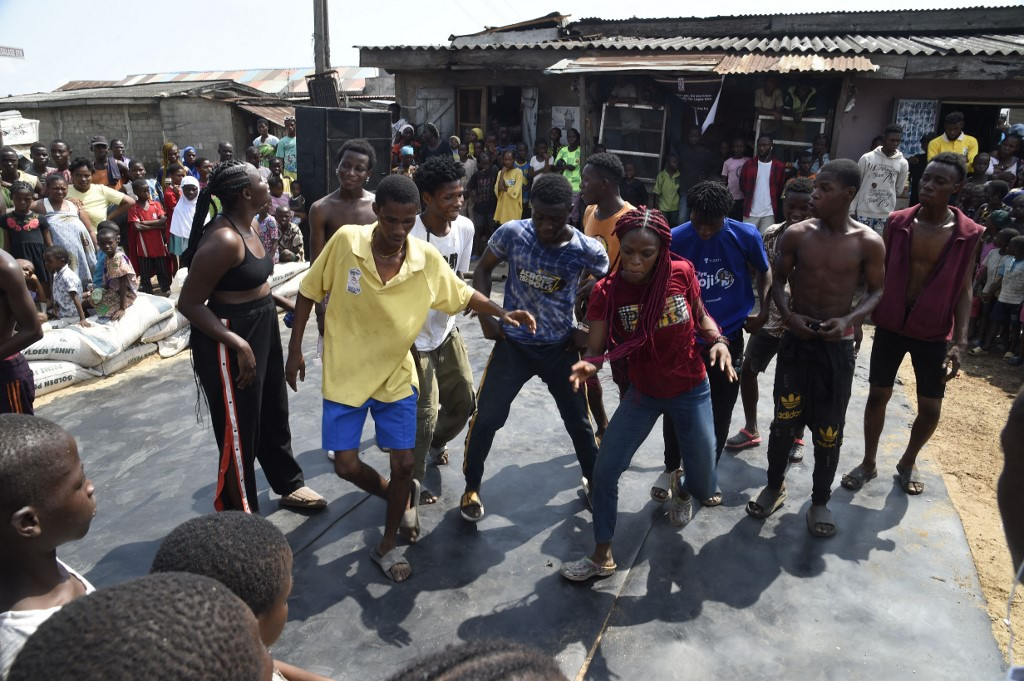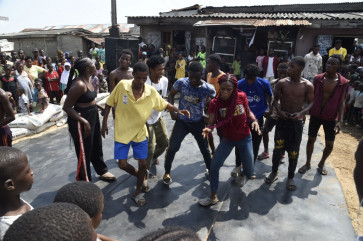Popular Reads
Top Results
Can't find what you're looking for?
View all search resultsPopular Reads
Top Results
Can't find what you're looking for?
View all search resultsIn poor Lagos district, 'slum party' brings hope and life
For three years, a collective of 10 young Nigerian performers has sought to improve the lives of Orowonshoki's residents through dance.
Change text size
Gift Premium Articles
to Anyone
T
o the rhythm of drums, two plastic giants whirl and kick up dust in an alleyway in Orowonshoki, one of the poorer districts of Lagos, Nigeria's megalopolis economic capital.
From shanty houses of wood and tin, inhabitants poke their heads outside, and watch wide-eyed as the strange procession bounces past.
Soon, the whole street sways and joins the dancers, whose costumes are crafted entirely from plastic bottles collected from the neighbourhood streets.
The "Slum Party" kicks off with a burst of music, dance and the flames of a fire breathing act.
For three years, a collective of 10 young Nigerian performers has sought to improve the lives of Orowonshoki's residents through dance, hoping to change the reputation of an area once blighted by gang violence.
"In 2019, Orowonshoki was facing a lot of security challenges, and no one was going out in street anymore," said Valu, one of the creators of the "Slum Party" that is held once a year.
"We started to dance in the street, so that the people won't be afraid anymore and they started to go back in the street," said Valu, a professional dancer whose real name is Sunday Ozegbe Obiajulu. "We started to bring life again."



















